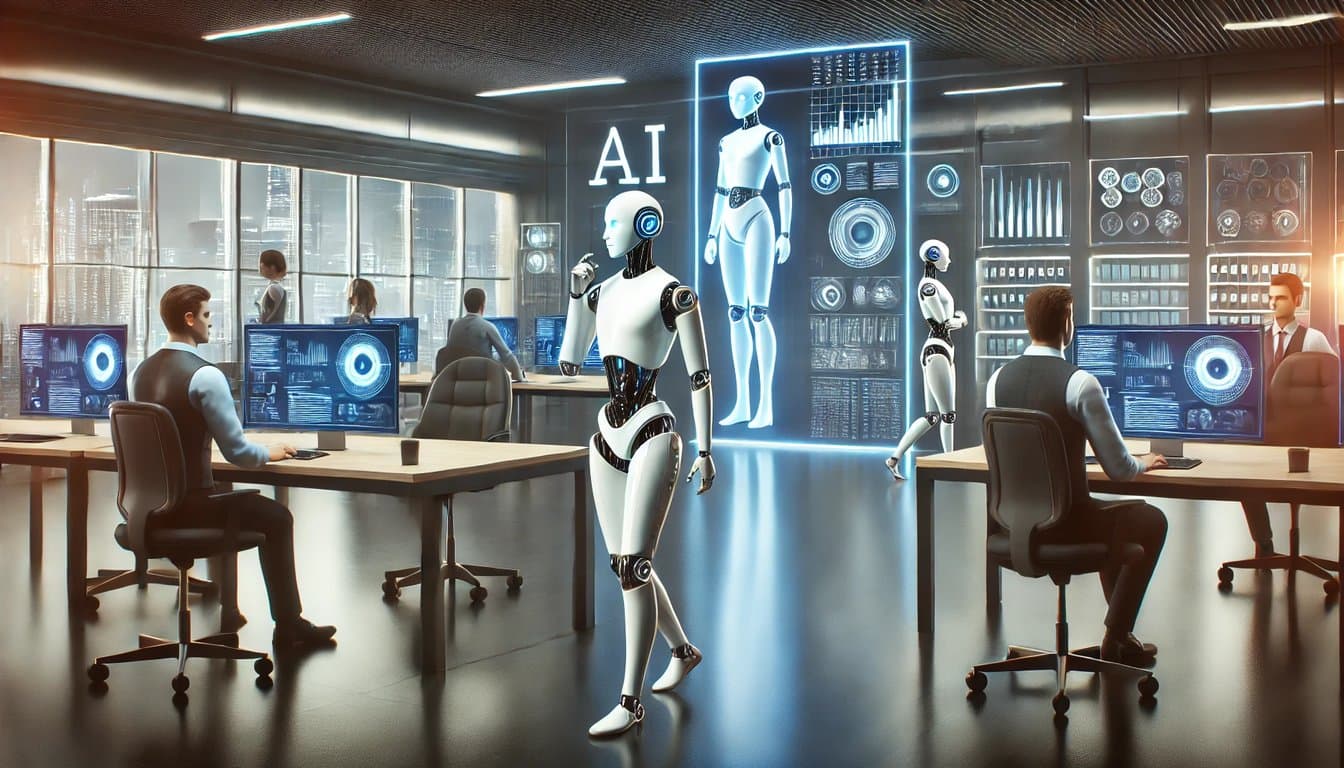
In recent years, Chinese artificial intelligence (AI) startups have been making significant strides in the global market, particularly in the United States. This expansion is not only driving revenue growth for these companies but also creating jobs and opportunities around the world. Let's explore how these innovative firms are making their mark on the international stage and contributing to the global economy.
The Rise of Chinese AI Startups
Chinese AI startups are increasingly looking beyond their domestic market to fuel rapid growth and emulate the success of companies like TikTok. Several factors have contributed to this trend:
Competitive domestic market: The AI industry in China is highly competitive, making it challenging for startups to stand out and generate substantial revenue.
Stringent regulations: Chinese companies face strict regulations at home, pushing them to explore more open markets abroad.
Access to global investors: Expanding internationally provides better access to global investors and customers.
Technological advantages: Chinese firms have shown a competitive edge in certain AI applications, such as avatar chatbots.
Key Players in the Global Expansion
Several Chinese AI startups have made significant inroads in the global market:
MiniMax
Backed by HongShan, Alibaba, and Tencent
Projected sales of $70 million in 2024
Popular avatar chatbot app "Talkie" targeting US teenagers
ByteDance
Owner of TikTok
Launched multiple AI apps overseas
Integrated AI features into existing apps like photo-editing app Hypic
01.ai
Developed productivity tool PopAi
Beta testing an AI search app
Tabcut
Founded in Hangzhou, China
Relocated to Singapore for better access to global investors and cutting-edge technologies
Strategies for Global Success
Chinese AI startups are employing various strategies to succeed in the global market:
Targeting mature markets: Companies are focusing on markets with established subscription-based Software as a Service (SaaS) models, where customers are more willing to pay for AI-driven services.
Overseas validation: Some firms, like 01.ai, are first validating their products and gauging market demand internationally before launching domestically.
Leveraging global platforms: Startups are using global cloud platforms like AWS to run their services, ensuring better performance and compliance with international regulations.
Innovative product offerings: Chinese companies are launching unique AI applications, such as avatar chatbots and productivity tools, to differentiate themselves in the global market.
Impact on Job Creation and Economic Growth
The global expansion of Chinese AI startups is having a positive impact on job creation and economic growth worldwide:
Direct employment: As these companies establish offices and operations in new markets, they create job opportunities for local talent in areas such as software development, marketing, and customer support.
Indirect job creation: The growth of AI startups stimulates demand for supporting services, such as legal, accounting, and consulting firms, creating additional employment opportunities.
Skills development: The presence of Chinese AI firms in global markets facilitates knowledge transfer and skills development in AI technologies, benefiting local workforces.
Economic stimulation: Increased investment and business activity from these startups contribute to economic growth in their target markets.
Innovation ecosystem: The entry of Chinese AI companies into new markets can foster a more vibrant innovation ecosystem, encouraging local startups and established firms to innovate and compete.
Challenges and Considerations
While the global expansion of Chinese AI startups presents numerous opportunities, it also comes with challenges:
Regulatory scrutiny: Chinese companies face increased scrutiny from foreign governments, particularly in the United States, due to concerns over data privacy and national security.
Cross-border data regulations: Navigating complex data storage and transfer regulations across different countries can be challenging for AI companies.
Cultural adaptation: Startups must adapt their products and services to suit local preferences and cultural norms in their target markets.
Competition with established players: Chinese AI firms must compete with well-established local and international companies in their target markets.
Geopolitical tensions: Ongoing geopolitical tensions between China and other countries may impact the ability of Chinese startups to operate freely in certain markets.
The Future of Chinese AI Startups in the Global Market
Despite the challenges, the future looks promising for Chinese AI startups in the global market:
Continued innovation: Chinese companies are likely to continue developing cutting-edge AI technologies and applications, driving innovation in the global AI industry.
Expansion into emerging markets: As competition intensifies in mature markets, Chinese AI startups may increasingly target emerging economies in Southeast Asia, Africa, and Latin America.
Collaboration opportunities: The global expansion of Chinese AI firms may lead to increased collaboration with international companies, fostering innovation and knowledge exchange.
Potential for acquisitions: Some Chinese AI startups may consider selling to larger entities or pursuing strategic partnerships to navigate regulatory challenges and accelerate growth.
Positive economic impact: As these companies continue to grow and expand, they are likely to create more jobs and contribute to economic growth in their target markets.
Conclusion
The global expansion of Chinese AI startups represents a significant shift in the international technology landscape. As these companies venture beyond their domestic market, they are not only driving their own growth but also creating jobs and opportunities around the world. While challenges remain, the innovative spirit and technological prowess of these startups position them well for continued success on the global stage.
As the AI industry continues to evolve, the contributions of Chinese companies to the global market will likely play an increasingly important role in shaping the future of technology and driving economic growth worldwide. By fostering a spirit of innovation, collaboration, and responsible development, these startups have the potential to create lasting positive impacts on the global economy and job market.
References
https://www.bloomberg.com/news/articles/2024-06-30/china-s-ai-startups-head-to-singapore-in-a-bid-for-global-growth
https://www.ft.com/content/c4acd6f8-f18f-41c7-9d67-b13337df2d0a
https://www.caixinglobal.com/2024-10-15/in-depth-chinese-ai-app-makers-look-overseas-for-their-big-break-102245701.html



